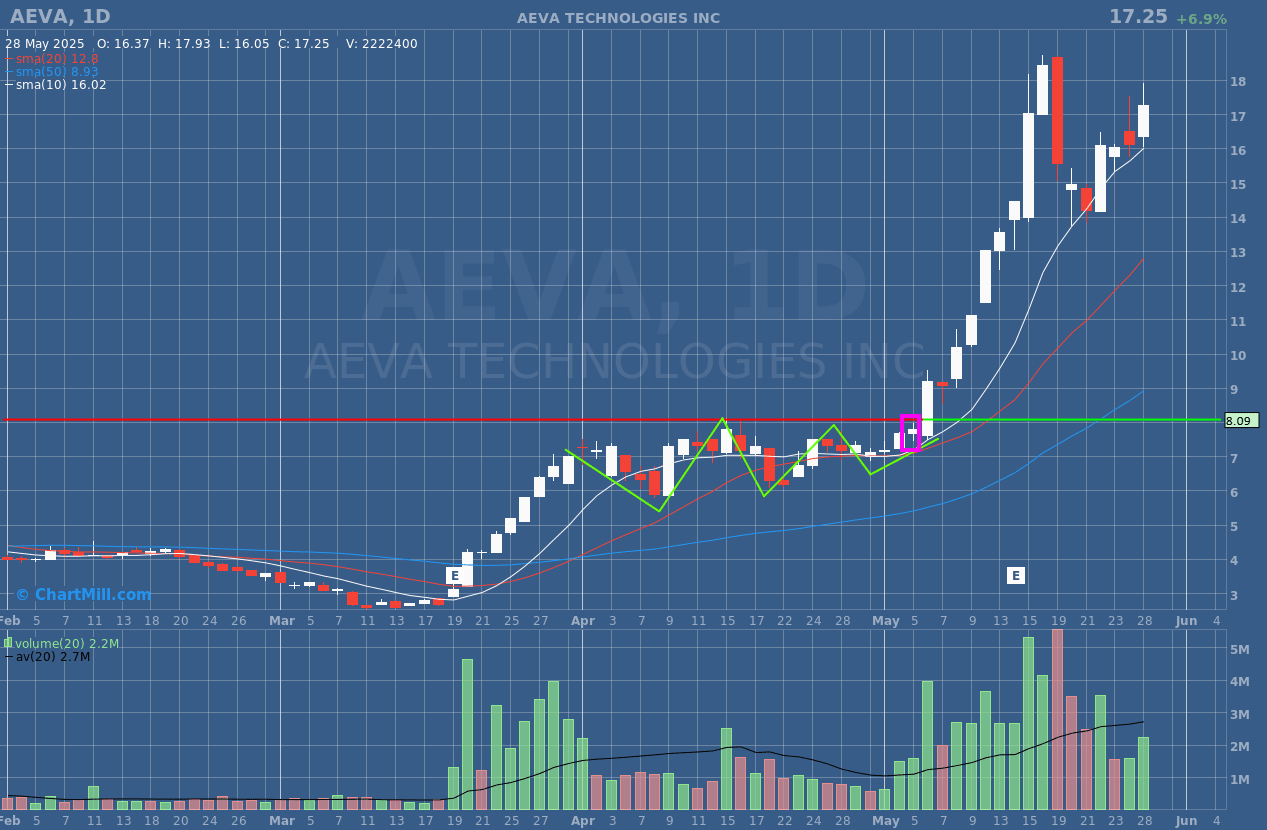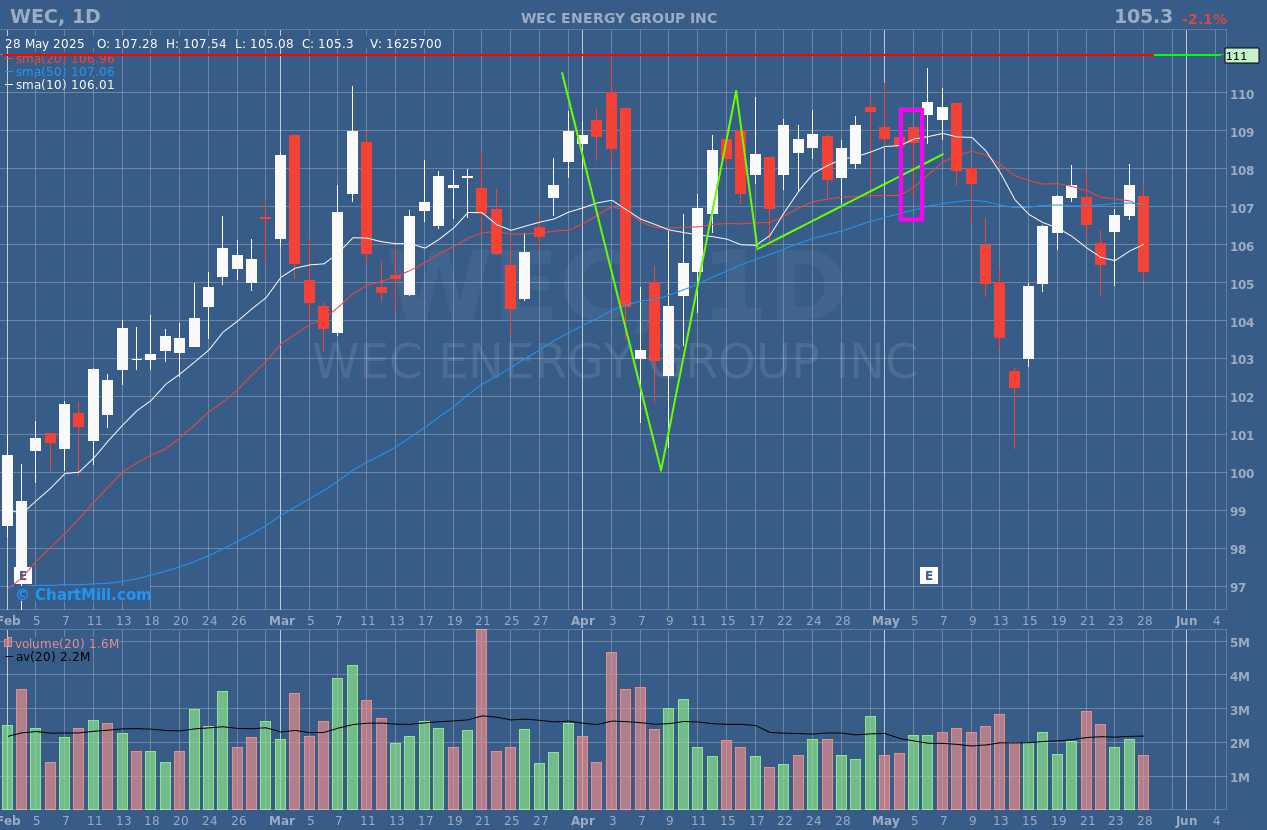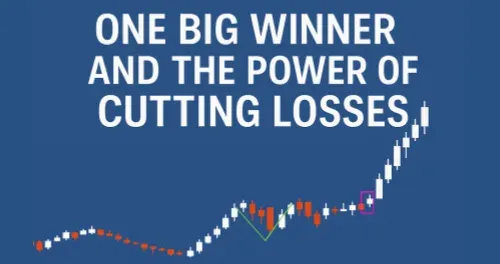If you’ve been swing trading for a while, or even if you’re just getting started, you’ve probably heard this classic line: “You only need a few big winners to make your year.”
But how do you really internalize that? And more importantly, how do you protect your portfolio while waiting for those winners to show up?
Let’s take a look at three swing trading setups we shared on May 5, 2025 in our daily swing trading watchlist on Substack : AEVA, CASY, and WEC. All three were textbook Minervini VCP Breakout setups.
The outcomes were very different, but together, they offer a perfect teaching moment on the real keys to long-term trading success: position sizing and risk management.
AEVA – A Textbook Breakout Winner
- Entry Trigger (Buystop): $8.12
- Stop Loss (Aggressive): $7.28
- Stop Loss (Defensive): $6.84
- Current Price (May 28): $17.25

This is what swing traders dream about.
After a long consolidation, AEVA triggered a clean breakout and never looked back. In just a few weeks, the stock has more than doubled from our entry.
Current %return:
Over 110%
Current R/R Using the agressive stop:
Risk-Reward Ratio: 1R risk = $0.84 | reward so far = $9.13 → >10:1 (almost 11:1)
Current R/R Using the defensive stop:
Risk-Reward Ratio: 1R risk = $1.28 | reward so far = $9.13 → >7:1
This is what we mean by letting your winners run. Trades like these - while rare - are the ones that can cover many small losses and still leave you well ahead. But the only way to benefit from them is to still be in the game when they come.
CASY – A Failed Breakout and a Quick Exit
- Entry Trigger (Buystop): $470.60
- Stop Loss (Aggressive): $454.44
- Stop Loss (Defensive): $443.03
- Current Price (May 28): $447.51

Outcome: Stopped out
This trade didn’t work out. After triggering the entry, CASY couldn’t follow through and quickly pulled back, that's when the stop loss kicked in.
But here’s the key: you followed the plan and didn’t let a losing trade turn into a big portfolio drain.
Loss using aggressive stop: $16.16 per share (3.43% of the stock price) Loss using defensive stop: $27.57 per share (5.86% of the stock price)
Reward? None, and that’s fine. Losses are part of the game, get used to it!
Keep in mind, it doesn't matter whether you use the aggressive or defensive stop loss. The risk per share determines the number of shares you may/can buy with your available trading capital.
For example, if you use a 1% risk size on a portfolio of $25000, your loss should never exceed $250.
When using the aggressive stop this means you can buy 15 shares > (250/16.16)
For the defensive stop this equates to 9 shares (250/27.57)
The loss is the same in both cases, $250 or 1R
WEC – No Trigger, No Trade
- Entry Trigger (Buystop): $111
- Stop Loss : $107.18
- Current Price (May 28): $105.30
Outcome: Entry never triggered
This setup looked decent at the time but never confirmed with a breakout. And that’s exactly why we use buystop orders, to make sure we only enter when momentum confirms our thesis.
Since the trade was never triggered, there’s no loss. You simply move on.

The Real Holy Grail: Risk Management and Position Sizing
Here’s what these three trades teach us:
-
You don’t need a high win rate. One AEVA can cover 5, 6, or more losing trades like CASY.
-
Cut losses fast. Don’t justify, don’t hope, don’t average down. Set your stop and respect it.
-
Use position sizing based on risk. A 3-5% stop should not result in a 10% portfolio drawdown. You control how much you're risking per trade (e.g., 1R = 1% of your portfolio).
-
Let winners run. Once a trade starts moving in your favor, trail your stop, don’t take profits too early just to “lock in gains.”
Final Thoughts
Many beginner traders obsess over finding the perfect setup. They focus on chart patterns, indicators, news... and while setups matter, they are not the most important part of your strategy.
The real difference between traders who last and those who don’t is simple:
They manage risk first.
So next time you’re planning a trade, ask yourself:
-
How much am I risking?
-
What’s my exit plan if I’m wrong?
-
And what will I do if I’m right?
Because with solid risk management, even a low win rate can be profitable. And when a trade like AEVA comes along, you’ll be ready to ride it? not regret missing it.
Happy trading,
The ChartMill Team



